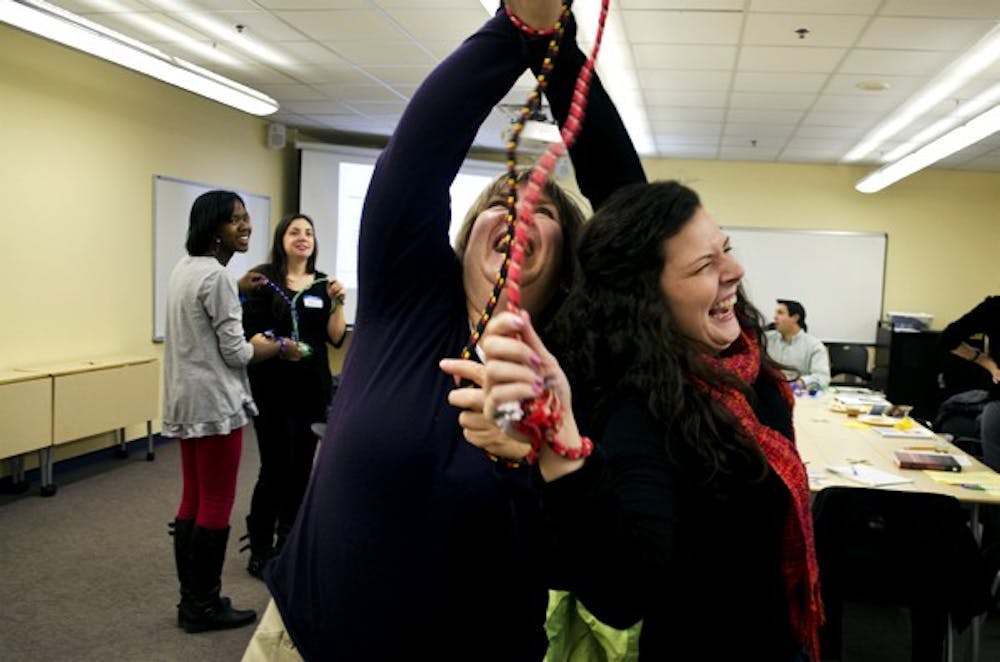Faculty gather to discuss supporting first-generation college students

Faculty members and staff met in the Charles V. Park Library Monday for a session sponsored by the Faculty Center for Innovative Teaching (FaCIT) to discuss tips and new strategies so staff can support first-generation college students.
“We need to be educating our faculty about this population of students and what they can do to help,” said Lauren Griffith, instructional designer of FaCIT. “… I think one of the things we always have to think about with first-generation students is the issue of cultural capital. If they’re not being told by their parents how to navigate the university, which is very complex that has all of these hidden norms, if they don’t get that education before they get here, then they are at a sort of disadvantage, and it’s not right.”
Mary Henley, director of the Pathways to Academic Student Success program, presented a PowerPoint during the session about how faculty and students can help first-generation students throughout their college experience.
“The main point is to talk out loud,” Henley said. “There are a lot of norms that happen within the classroom that first-generation students may not know."
Henley was also a first-generation college student in her family and can relate to the struggles first-generation students face.
“It’s shaped me, because I’ve had those experiences,” Hanley said. “… So, I’m able to provide the knowledge and provide the information and work with students and work with faculty and work with staff in order to make it better for students who are first-generation, low-income.”
Judy Idema, associate director of Honors and Centralis program, attended the session because the Honors program has an interest in recruiting first-generation college students and providing them with support services. Idema was also a first-generation college student and hopes to mentor students and “encourage them to do things they may not otherwise have thought of doing.”
“I came to school academically prepared; however, I didn’t have financial resources and understanding of the university culture,” she said. “So that was new to me, but, luckily, when I got to college, I had several strong faculty and staff mentors who helped show me the way and how to be successful and locate the resources I needed to.”
College is a learning experience for all. With the accessibility of resources and the support from staff and faculty, students will be able to persevere no matter what their backgrounds are.
“Morally, I think that we need to make sure that all our students have an equal playing field,” Griffith said. “So, I’m hoping that the faculty who came here today will walk away with some specific techniques they can use in their classroom to make those norms transparent and bring them to life so that students can really succeed.”



